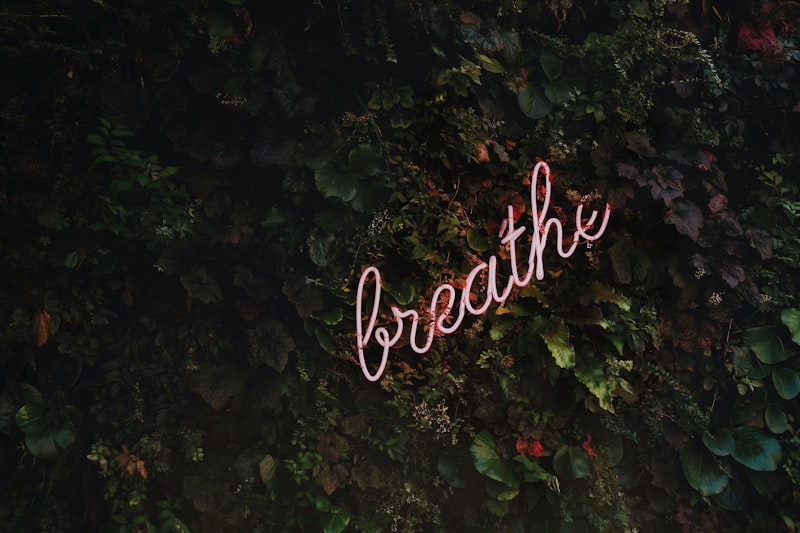Taking care of yourself isn’t just a luxury—it’s a necessity. In today’s fast-paced world, where stress and demands often take center stage, practicing self-care is crucial for maintaining overall well-being. But what exactly does self-care entail, and how can it significantly impact your life? Let’s delve into some effective strategies that can help you prioritize self-care and enhance your quality of life.
Firstly, self-care isn’t selfish; it’s about nurturing yourself so that you can be your best self for others. Imagine yourself as a vehicle—you can’t keep driving without fueling up and performing regular maintenance. Similarly, self-care involves refueling your body, mind, and spirit to function optimally in all aspects of life.
One essential self-care strategy is establishing a routine that includes activities you genuinely enjoy. Whether it’s reading a book, going for a run, practicing yoga, or simply taking a long bath, carve out time each day to engage in activities that recharge you mentally and physically. These activities are not just indulgences; they’re investments in your well-being.
Secondly, prioritize sleep as a cornerstone of your self-care routine. Adequate sleep is fundamental to your overall health. It’s during sleep that your body repairs itself, consolidates memories, and processes emotions. Aim for 7-9 hours of quality sleep each night, and create a bedtime ritual that signals to your body that it’s time to unwind.
Additionally, pay attention to your nutrition. Fueling your body with nutritious foods not only supports physical health but also influences your mood and energy levels. Incorporate plenty of fruits, vegetables, lean proteins, and whole grains into your diet. Stay hydrated throughout the day, as even mild dehydration can affect your mood and cognitive function.
Moreover, practice mindfulness and stress management techniques. Mindfulness involves being present in the moment and cultivating awareness without judgment. Techniques like meditation, deep breathing exercises, and progressive muscle relaxation can help reduce stress levels and promote a sense of calm and balance in your life.
Lastly, don’t hesitate to seek support from others when needed. Whether it’s talking to a trusted friend or seeking professional help from a therapist, reaching out is a sign of strength, not weakness. Surround yourself with people who uplift and support you, and limit time with those who drain your energy.
Unlocking Serenity: 10 Self-Care Strategies Proven to Enhance Well-Being

Imagine waking up each morning feeling refreshed, rejuvenated, and ready to conquer the day ahead. This isn’t just a dream—it’s the promise of self-care strategies that can truly unlock a deep sense of serenity and enhance your overall well-being. In today’s fast-paced world, taking care of yourself isn’t just a luxury; it’s a necessity. Let’s explore 10 proven self-care strategies that can help you achieve this serene state of being.
-
Mindful Meditation: Take a few minutes each day to sit quietly and focus on your breath. Mindful meditation has been shown to reduce stress, increase self-awareness, and improve concentration.
-
Quality Sleep: Sleep is crucial for our physical and mental health. Aim for 7-9 hours of quality sleep each night to allow your body and mind to recharge.
-
Regular Exercise: Moving your body not only keeps you physically fit but also releases endorphins that boost your mood and energy levels. Find an activity you enjoy, whether it’s yoga, running, or dancing.
-
Healthy Nutrition: Fuel your body with nutritious foods that provide sustained energy. Incorporate plenty of fruits, vegetables, lean proteins, and whole grains into your diet.
-
Digital Detox: Unplug from screens and technology regularly. Give yourself a break from constant notifications and immerse yourself in activities that nourish your soul.
-
Creative Expression: Whether it’s painting, writing, or playing music, creative activities can be therapeutic. They allow you to express yourself and tap into your inner creativity.
-
Nature Therapy: Spending time in nature has a calming effect on the mind. Take a walk in the park, hike a trail, or simply sit by the beach to recharge your batteries.
-
Set Boundaries: Learn to say no to things that drain your energy or cause unnecessary stress. Setting boundaries is essential for preserving your mental and emotional well-being.
-
Practice Gratitude: Cultivate a mindset of gratitude by acknowledging and appreciating the positive aspects of your life. Keep a gratitude journal to reflect on the good things each day.
-
Connect Socially: Surround yourself with supportive friends and family members who uplift you. Social connections are vital for a sense of belonging and emotional support.
Incorporating these self-care strategies into your daily routine can lead to profound improvements in your overall well-being. Remember, self-care is not selfish—it’s a gift you give yourself to ensure you can show up fully in every aspect of your life.
The Science Behind Self-Care: Techniques That Boost Your Mental and Physical Health
Firstly, mindfulness stands out as a cornerstone of self-care. It’s not just about meditation; it’s about actively engaging in the present moment without judgment. Imagine it as a mental reset button that helps you manage stress, improve focus, and foster emotional resilience. Just a few minutes a day can make a remarkable difference in how you feel.
Exercise, another key player in self-care, goes beyond physical fitness. When you work out, your body releases endorphins — those feel-good hormones that reduce pain and trigger positive sensations. Whether it’s a brisk walk in the park or a yoga session at home, finding an activity you enjoy can turn self-care into a rewarding habit rather than a chore.
Sleep, often underestimated, is where the magic happens for both your mind and body. During sleep, your brain processes information, consolidates memories, and repairs tissues. Quality sleep is essential for cognitive function, mood regulation, and overall health. Establishing a bedtime routine and creating a sleep-conducive environment can pave the way for restorative rest.
Nutrition forms another vital aspect of self-care. Eating a balanced diet rich in nutrients fuels your body and mind. Think of your body as a high-performance machine — it needs the right fuel to function optimally. Incorporating fresh fruits, vegetables, lean proteins, and whole grains can boost your energy levels and support your immune system.

Lastly, don’t underestimate the power of social connections. Human beings thrive on meaningful relationships. Whether it’s sharing a laugh with friends or seeking support from loved ones during tough times, nurturing your social bonds can buffer against stress and enhance your overall well-being.
Daily Rituals: How Consistent Self-Care Practices Can Transform Your Life
Imagine waking up each morning feeling refreshed and ready to conquer the day ahead. What if there was a simple way to enhance your overall well-being and productivity without drastic changes? The answer lies in daily rituals—small, intentional acts of self-care that can have a profound impact on your life.
Self-care isn’t just about pampering yourself occasionally; it’s about creating a sustainable routine that nourishes your body, mind, and soul. Whether it’s starting your day with a 10-minute meditation session, going for a rejuvenating morning walk, or even savoring a nutritious breakfast, these rituals set a positive tone for the rest of your day.
Consistency is key when it comes to reaping the benefits of self-care rituals. Just like watering a plant daily helps it thrive, taking time for yourself every day can lead to significant improvements in your overall well-being. Over time, you may notice increased energy levels, improved focus, and a greater sense of inner peace.
Moreover, daily rituals can act as anchors in your busy life, providing a sense of structure and stability. In the midst of hectic schedules and constant demands, these rituals serve as reminders to prioritize yourself and your needs. They empower you to navigate challenges with resilience and a clear mind.
Think of daily self-care rituals as deposits into your well-being bank account. The more consistently you invest in yourself, the greater the dividends in terms of health, happiness, and productivity. It’s not about perfection but rather about commitment to nurturing yourself every single day.
In essence, integrating daily rituals into your routine isn’t just a luxury; it’s a necessity for holistic well-being. By cultivating simple yet powerful habits, you can transform your life one day at a time. So, what will your first self-care ritual be tomorrow morning?
From Mindfulness to Movement: Exploring Diverse Self-Care Approaches
Imagine starting your day not with groggy reluctance, but with a purposeful stretch that wakes up both your muscles and your mind. That’s the essence of movement-focused self-care. Whether it’s yoga’s fluid motions or the invigorating rhythm of dance, these practices encourage us to tune into our bodies and synchronize our movements with our thoughts. It’s about fostering a deeper connection between our physical being and our emotional state.
Mindfulness, on the other hand, traditionally anchors itself in stillness and meditation. It prompts us to be present in the moment, to observe our thoughts without judgment. But what happens when we integrate movement into this equation? We discover a dynamic form of mindfulness where each stretch, each step, becomes a deliberate act of self-awareness.
Picture yourself amidst a serene park, practicing Tai Chi as the morning sun casts gentle shadows around you. Each movement unfolds like poetry in motion, calming yet purposeful. This amalgamation of movement and mindfulness allows us to not only alleviate stress but also to cultivate resilience and balance in our lives.
Moreover, this approach isn’t confined to ancient practices alone. Modern disciplines like Pilates and mindful running exemplify how movement can be a gateway to a more grounded self. They encourage us to break free from the sedentary traps of modern life and embrace physical activities that nourish both body and soul.
In essence, from mindfulness to movement, the spectrum of self-care is evolving. It invites us to explore beyond the traditional boundaries and discover new ways to nurture our well-being. By blending mindfulness with movement, we embark on a journey where every stretch, every breath, becomes a testament to our commitment to self-care and holistic wellness.
Self-Care Beyond Bubble Baths: Practical Tips for Real-World Well-Being
When it comes to self-care, many of us immediately think of indulgent bubble baths and spa days. While those can be delightful treats, true self-care goes beyond these occasional luxuries. It’s about nurturing your well-being in practical ways that fit into your everyday life. Let’s explore some practical tips for real-world well-being that anyone can incorporate into their daily routine.
Firstly, prioritize sleep. It’s not just about the quantity of sleep but also the quality. Create a calming bedtime routine, limit screen time before bed, and ensure your sleep environment is conducive to rest. Adequate sleep rejuvenates your body and mind, setting a positive tone for the day ahead.
Next, nourish your body with balanced nutrition. Eating well isn’t about strict diets but rather about fueling your body with wholesome foods. Aim for a variety of fruits, vegetables, lean proteins, and whole grains. Stay hydrated throughout the day to maintain optimal functioning.
Physical activity is another cornerstone of self-care. Find activities that you enjoy, whether it’s a brisk walk in nature, yoga session at home, or dancing to your favorite music. Exercise releases endorphins, which boost mood and reduce stress.

In our fast-paced world, mental health often takes a backseat. Practice mindfulness and relaxation techniques to manage stress effectively. This could include deep breathing exercises, meditation, or simply taking a few minutes each day to unplug and unwind.
Social connections play a vital role in well-being. Nurture relationships with friends and family members who uplift and support you. Schedule regular catch-ups or phone calls to stay connected, even if it’s virtually.
Lastly, don’t underestimate the power of setting boundaries. Learn to say no to commitments that drain your energy or overwhelm you. Respect your own limits and make self-care a non-negotiable part of your routine.
Self-care extends beyond fleeting pleasures to encompass daily practices that promote holistic well-being. By incorporating these practical tips into your life, you can cultivate a healthier and happier you.
Self-Care in a Digital Age: Balancing Technology Use for Mental Wellness
With smartphones in our pockets and constant connectivity at our fingertips, it’s easy to get absorbed in the virtual world. While technology brings convenience and opportunities, it also brings challenges such as digital overload and information overwhelm. So, how do we strike a balance?
Firstly, self-awareness plays a key role. Recognizing when technology is becoming overwhelming or addictive is the first step towards maintaining mental wellness. It’s like being mindful of how much caffeine you consume – moderation is key.
Setting boundaries is equally important. Just like a fence around a garden keeps it orderly and protected, setting limits on screen time and social media usage can prevent digital fatigue. Ask yourself: Am I mindlessly scrolling through social feeds, or am I engaging in activities that truly nourish my mind?
Additionally, integrating offline activities into your daily routine can provide a refreshing break from the digital noise. Taking a walk in nature, practicing yoga, or simply enjoying a good book are simple yet effective ways to recharge your mental batteries.
Moreover, nurturing real-life connections is essential. While technology connects us globally, it’s face-to-face interactions that fulfill our innate need for human connection. Spending quality time with loved ones, having meaningful conversations, and sharing experiences offline can significantly boost our mental well-being.
Lastly, practicing digital mindfulness can transform the way we interact with technology. Just as we savor each bite of a delicious meal, being present and intentional with our digital interactions can reduce stress and improve focus.
Navigating the digital age requires conscious effort to prioritize mental wellness. By practicing self-awareness, setting boundaries, integrating offline activities, nurturing real-life connections, and embracing digital mindfulness, we can achieve a harmonious balance between technology use and mental well-being. So, let’s embark on this journey towards a healthier relationship with technology, one mindful step at a time.
Empowerment Through Self-Care: Strategies Every Individual Should Know
Firstly, start with the basics: sleep and nutrition. Think of your body as a high-performance machine that needs fuel and rest to function optimally. Getting enough sleep and eating nutritious foods not only rejuvenates you physically but also enhances your mental clarity and emotional resilience.
Next, carve out “me time” amidst your busy schedule. This could be as simple as taking a leisurely walk in nature, enjoying a hobby you love, or indulging in a relaxing bath. These moments of solitude and enjoyment recharge your batteries and remind you of your own worth outside of your responsibilities.
Practice mindfulness and meditation to cultivate inner peace and reduce stress. These practices have been scientifically proven to lower cortisol levels and improve overall well-being. Even a few minutes of deep breathing exercises can make a significant difference in how you approach challenges throughout the day.
Setting boundaries is another crucial aspect of self-care. Learn to say no to activities or commitments that drain your energy or don’t align with your priorities. By prioritizing your own needs and goals, you create space for activities that truly nourish and fulfill you.
Additionally, don’t underestimate the power of physical activity. Exercise releases endorphins, which are natural mood lifters. Whether it’s yoga, jogging, dancing, or hitting the gym, find an activity that you enjoy and make it a regular part of your routine.
Lastly, seek support from others. Surround yourself with people who uplift and encourage you. Whether it’s friends, family, or a support group, having a strong social network can provide emotional validation and practical assistance when needed.
Practicing self-care isn’t about being selfish—it’s about recognizing your own worth and taking steps to nurture your physical, mental, and emotional well-being. By incorporating these strategies into your daily life, you can cultivate a sense of empowerment that allows you to thrive, no matter what challenges come your way.
Frequently Asked Questions
How do I manage stress through self-care techniques?
Discover effective self-care techniques to manage stress with our concise guide. Learn practical strategies for relaxation and well-being that empower you to reduce stress and enhance your overall quality of life.
What are the essential self-care practices for better well-being?
Learn about essential self-care practices that enhance overall well-being, including methods like regular exercise, adequate sleep, healthy nutrition, mindfulness techniques, and setting boundaries to manage stress effectively.
How can I create a personalized self-care routine?
Learn how to create a personalized self-care routine with our concise guide. Discover steps to identify your needs, select activities that rejuvenate you, and establish a sustainable daily practice.
What are some quick self-care activities for busy schedules?
Discover effective self-care activities that fit into busy schedules. Learn quick techniques like deep breathing exercises, 5-minute stretches, mindful walks, or listening to calming music. These activities promote relaxation and recharge your energy swiftly.
Why is self-care important for overall well-being?
Understand why self-care matters for your well-being. Learn how it enhances mental health, reduces stress, and promotes a balanced life.


